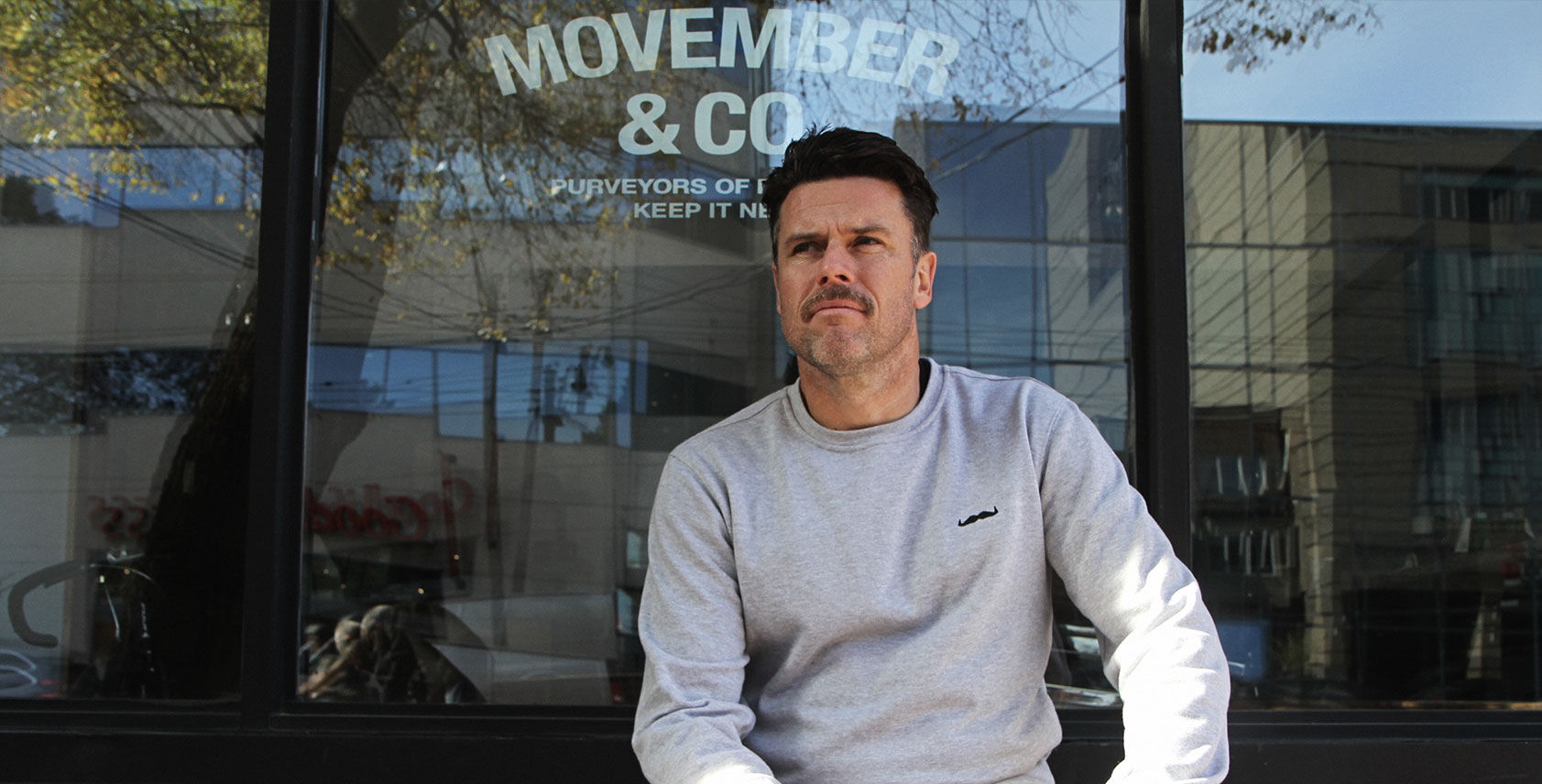Movember Founder Adam Garone Talks Mental Health and Moustaches
It happens every November, and every November we ask the same question: what’s up with all the hideous moustaches? Well, you can thank Adam Garone and his band of Australian do-gooders for that.
Garone is the co-founder and Chief MoBro (his actual, serious title, we swear) of The Movember Foundation, an organization dedicated to raising awareness of prostate and testicular cancer and mental health and suicide prevention. (If you have Facebook, you already knew that.) Last year, Movember had five million participants and raised almost $103 million. Some people write the organization off as a gimmick — a furry-lipped craze that should go away. Others wonder if the success of the brand has actually made a real difference. We talked to Garone to clear up a few things — including why it’s time to start taking your mental health more seriously than growing your next moustache.
What was the original concept for Movember?
It was a joke. It was an excuse to have two epic parties, one at the beginning of November clean-shaven and then another one at the end of the month with a moustache. Once people started to ask why we were growing them, we decided to attach a cause to it. We were inspired by the breast cancer movement and wanted something similar for men — to talk about it without stigma.
Why is there a stigma and how are you working to change it?
Men are conditioned to think of masculinity as something without any vulnerability. We want men to feel comfortable enough to talk about health with their friends and family, eventually teaching their sons to do so without an issue.
Last year’s ALS Ice Bucket Challenge went totally viral — but the money raised ended up funding a significant breakthrough. How does Movember balance its inherent gimmickiness and its charitable ambitions?
We put a lot of focus on the foundation and its longevity. We make sure that people know exactly what we’re doing and why. A lot of people who took part in the ice bucket challenge didn’t even know what ALS is. The conversation has to continue past November. For example, April is Testicular Cancer Awareness month and we sell soap-on-a-rope in the shape of testicles so men are reminded to check themselves in the shower. It’s funny but keeps the momentum going.
But in more concrete terms: what are the biggest breakthroughs so far?
We never intended this to be what it is. In 2004 we raised $55,000 between 250 of us. The next year we raised $1.2 million and it was at that point when we realized we could make a real difference. If you look at prostate cancer, we helped fund the mapping of the genome. At the University of Michigan, we funded the identification that showed there are 28 types of prostate cancer. That’s important because there are about six or seven that are deadly and need to be radically treated, while the other kinds can be treated by surveillance and diet. There are many men who rush into surgery and are left with incontinence, impotence, and depression when they could have used a softer treatment. We’re working to be able to identify those right off the bat.
When it comes to suicide prevention, we fund $27 million in Canada alone for programs that help men with their mental health. From trans individuals and aboriginals to veterans and incarcerated men, we help a wide spectrum of guys who need help. One of our veterans programs has them carve a totem pole with the names of friends they’ve lost, and they travel around with it and talk about it. It gives them a way to open up and talk.
How can men be more vigilant about their health?
Know your family history. That will start a discussion about health issues. Know which is- sues will affect you at different ages. We want men to maintain strong friendships so there’s always someone to talk to. You won’t want to unload your issues on someone you haven’t seen in a year. Have conversations about shit that matters.










